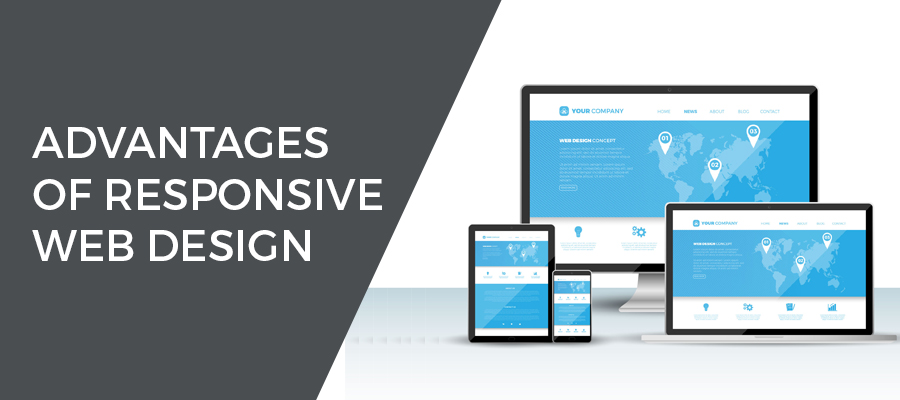
In an era where digital accessibility is paramount, responsive web design stands as a pivotal solution. Its benefits extend far beyond mere adaptability to various devices; it's about providing an optimal user experience while reaping numerous other advantages.
1. Enhanced User Experience:
Responsive design ensures that your website adjusts seamlessly to any screen size or device, offering a consistent and user-friendly experience. This adaptability leads to improved engagement, lower bounce rates, and increased time spent on your site.
2. Improved SEO Performance:
Search engines favor responsive websites as they provide a single URL for all devices. This consolidation avoids duplicate content issues and simplifies the process for search engine crawlers to index and rank your site, positively impacting its visibility and ranking.
3. Cost-Effectiveness:
Maintaining separate desktop and mobile versions of a website can be resource-intensive. Responsive design eliminates this need, reducing development, maintenance, and hosting costs, making it a cost-effective solution in the long run.
4. Faster Web Page Loading:
Mobile users, in particular, value speed. Responsive design optimizes web pages for various devices, ensuring quicker load times. Fast-loading pages contribute to lower bounce rates and higher user satisfaction.
5. Increased Reach Across Devices:
With the multitude of devices available, catering to each screen size and resolution becomes crucial. Responsive design enables your site to reach a broader audience, irrespective of the device they use, thereby expanding your potential customer base.
6. Easier Analytics and Reporting:
Having a single responsive site makes tracking user journeys and analytics simpler. Rather than managing multiple versions, data analysis becomes centralized, offering a clearer picture of user behavior and preferences.
7. Future-Proofing Your Website:
As new devices and screen sizes continually emerge, a responsive design provides a level of future-proofing. Your site will remain adaptable to upcoming technologies, saving you from frequent redesigns or overhauls.
8. Ease of Maintenance:
Managing a single website is more straightforward than juggling multiple versions. With responsive design, updates, content changes, and fixes only need to be implemented once, streamlining the maintenance process.
9. Brand Consistency:
Consistency in branding is crucial for user recognition and trust. A responsive design ensures that your brand's look, feel, and messaging remain consistent across all devices, reinforcing brand identity.
10. Adaptability to Various Orientations:
Responsive design doesn’t just cater to different screen sizes but also accommodates different orientations (landscape or portrait). This flexibility ensures your website remains functional and visually appealing regardless of how users hold their devices.
11. Competitive Edge:
In a competitive online landscape, providing an excellent user experience can set you apart. A responsive website gives you an edge by offering seamless accessibility, faster loading times, and a user-friendly interface compared to non-responsive counterparts.
12. Social Media Benefits:
Sharing content across various social media platforms is commonplace. A responsive website ensures that shared links lead to an optimized experience, regardless of the device or platform where they're accessed, fostering better engagement and interaction.
13. Accessibility Compliance:
Accessibility is a critical aspect of web design. Responsive design lays the groundwork for better accessibility, ensuring that users with disabilities can navigate and interact with your site more easily, complying with accessibility standards.
Conclusion:
The benefits of responsive web design are multifaceted, addressing the diverse needs of users, businesses, and the ever-evolving digital landscape. Its role in providing an adaptable, user-centric, cost-effective, and future-proof solution underscores its significance as a foundational element in web development strategies. Integrating responsive design is not just about meeting current demands; it's about ensuring sustained success and relevance in the digital sphere.






0 Comments